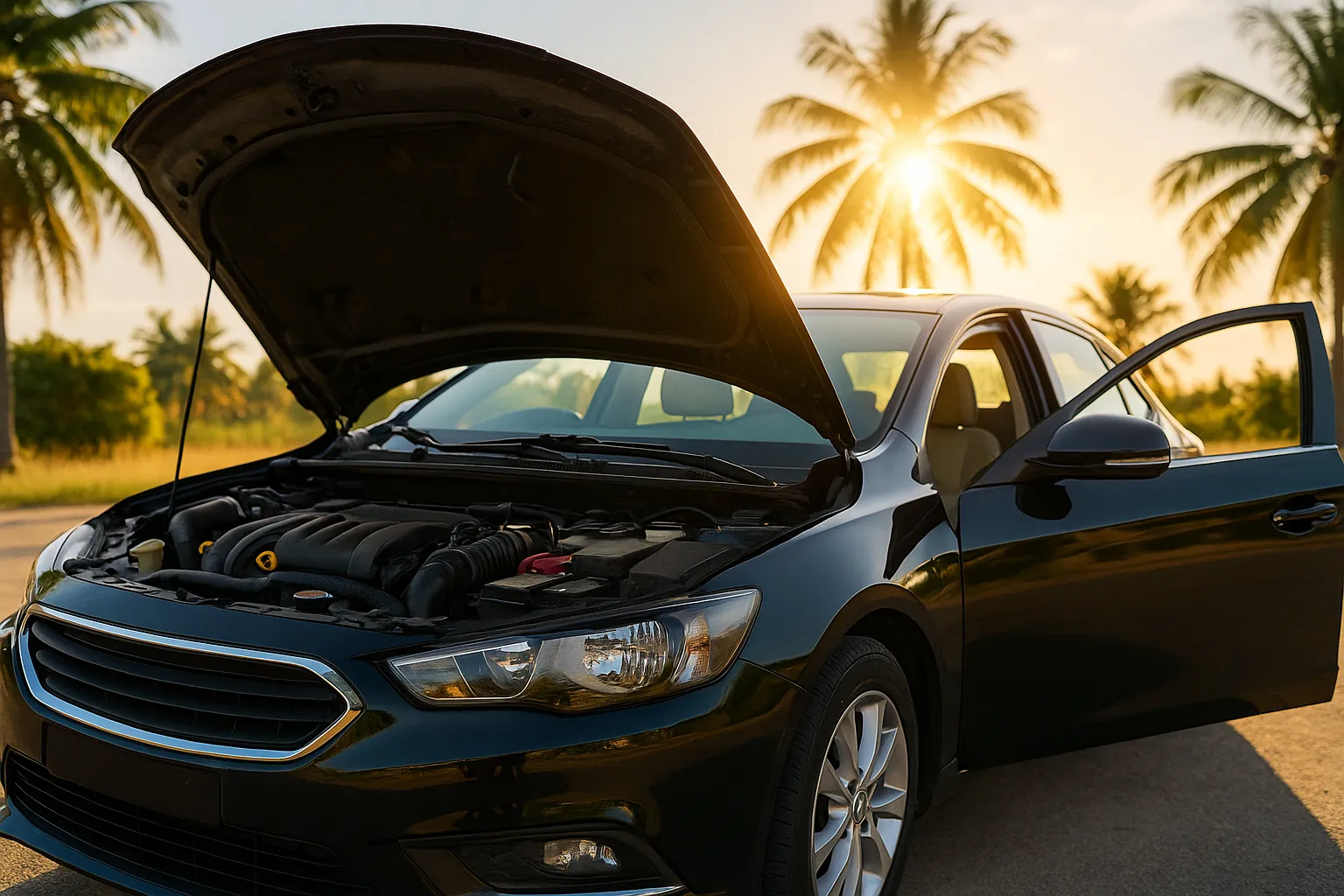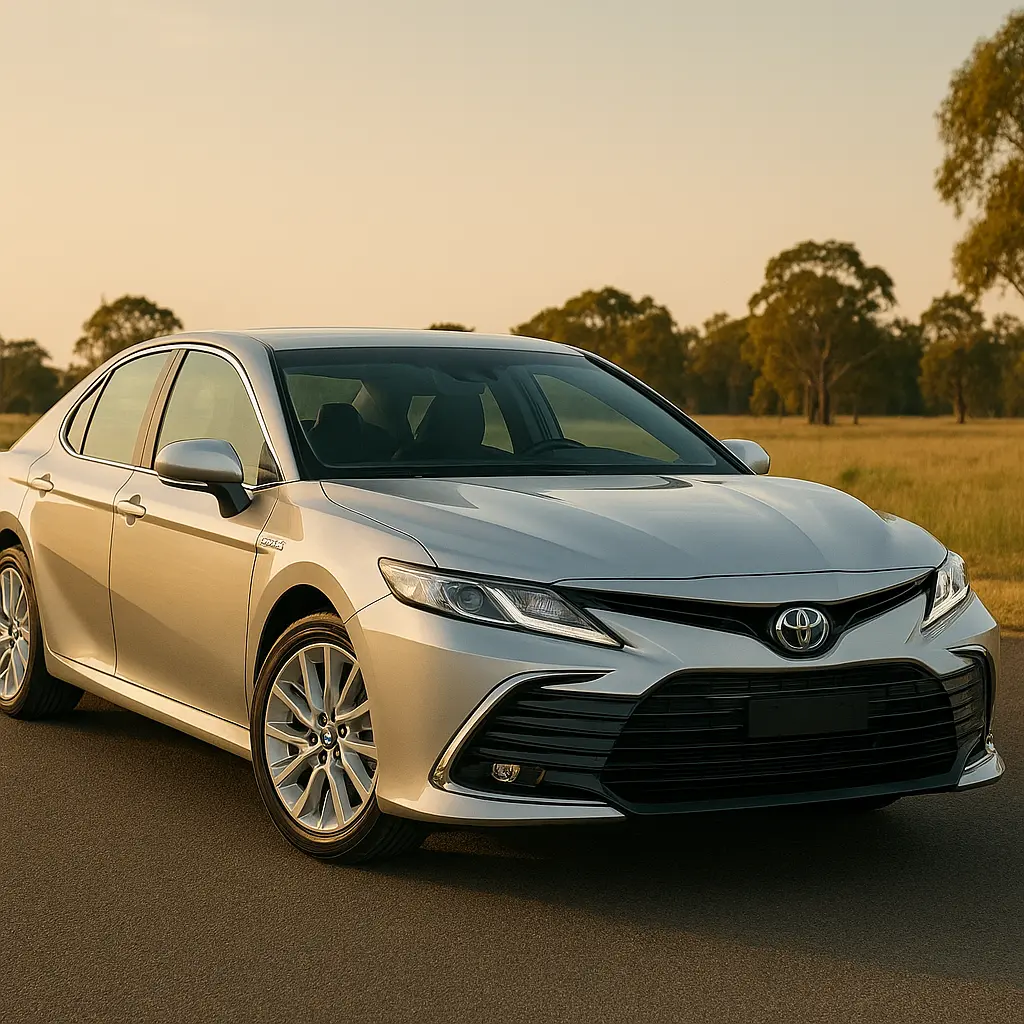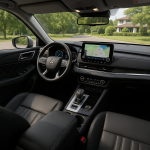Why Summer Car Maintenance Matters in Australia
Australia’s summer isn’t just about beach trips, cricket matches, and backyard BBQs. It also means scorching temperatures, UV intensity, and long-distance holiday drives—all of which put serious stress on your car. Prepping your vehicle for the summer months is not just good maintenance practice—it’s essential for performance, safety, and cost-efficiency.
Whether you're road-tripping to Byron Bay or commuting through the sweltering city, our 2025 Aussie summer car prep guide walks you through everything you need to know.

1. Check and Top Up Fluids – Your Car’s Lifeblood
a. Engine Oil
Heat thins out oil, reducing its effectiveness in lubricating engine parts. Make sure:
- The oil is at the correct level.
- It’s not due for a change (refer to your service log).
- You’re using summer-grade synthetic oil if needed.
b. Coolant (Antifreeze)
This is critical in summer.
- Check the radiator and overflow tank.
- Ensure the coolant is a 50/50 mix (or as specified by your vehicle).
- Inspect for leaks around hoses and the radiator cap.
c. Transmission & Brake Fluid
Transmission overheating is a common summer issue, especially during towing.
- Check levels and colour.
- Flush if fluid appears dirty or smells burnt.
2. Air Conditioning System – Keep Cool Behind the Wheel
a. Performance Check
- Does your AC take too long to cool?
- Is airflow weak?
- Is there a bad odour?
These symptoms may point to a gas leak, clogged cabin filter, or failing compressor.
b. Cabin Filter
- Replace the cabin air filter every 15,000–20,000km.
- A clogged filter means poor cooling and increased AC strain.
c. Regassing
In 2025, most cars still use R134a refrigerant, though EVs and hybrids may use R1234yf. Regassing should be done professionally.
3. Tyres – Heat, Grip and Safety
a. Tyre Pressure
- Heat causes air to expand, affecting pressure.
- Check when cold and maintain manufacturer-recommended PSI.
- Remember the spare!
b. Tread Depth
Summer storms = slick roads.
- Legal limit is 1.5mm, but replace at 3mm for safety.
- Uneven wear could mean poor alignment.
c. Tyre Age
Rubber degrades faster in summer. If your tyres are 5+ years old, consider replacing them even if tread looks fine.
4. Battery Health – Summer Can Kill Weak Batteries
Batteries fail more in summer than winter due to heat-related evaporation of internal fluids.
Tips:
- Get a battery test done (free at most auto retailers).
- Clean any corrosion around terminals.
- Replace batteries older than 3 years to avoid sudden failure.
5. Cooling System – Your Engine’s Best Friend
a. Radiator
- Flush every 2–3 years or as per service guide.
- Inspect for cracks or corrosion.
b. Hoses & Belts
- Look for bulges, cracks, or soft spots.
- Tighten any loose clamps or connections.
6. Windshield, Wipers & Washer System
Summer storms, bugs, and road dust reduce visibility.
Checklist:
- Replace worn wipers.
- Top up washer fluid with bug-removing formula.
- Clean inside and outside of windshield to reduce glare.
7. Lights and Electronics
Bright sunlight exposes any faded or non-functioning lights.
- Test brake, reverse, indicator, and headlamps.
- Replace any burnt-out bulbs.
- Consider upgrading to LED for better daytime visibility.
8. Air Filters & Engine Breathing
High pollen and dust in summer impact performance.
- Replace engine air filter every 20,000–30,000km.
- Off-roaders and rural drivers may need more frequent checks.
9. Paint & Interior Protection – Aussie Sun Is Brutal
a. Exterior Care
- Apply UV-protective wax or ceramic coating.
- Wash regularly to remove bird droppings and sap.
b. Interior Protection
- Use sunshades.
- Treat leather and plastics with UV-resistant protectants.
- Tinted windows reduce interior temperatures.
10. Emergency Kit – Don’t Leave Home Without It
With road trips on the rise in 2025, a stocked summer kit is essential:
- Spare coolant and oil
- Tyre repair kit or inflator
- First aid kit
- Portable fan or battery-powered mini AC
- Water bottles
- Flashlight and spare batteries
11. Don’t Forget the Tech: Software & Navigation
a. Infotainment & Firmware Updates
- Update navigation to avoid getting lost in remote areas.
- Ensure connectivity apps like Apple CarPlay or Android Auto are running latest versions.
b. Dash Cams & Sensors
- Clean lenses and test functionality.
- Check ADAS sensors (Adaptive Cruise, Lane Keep Assist) for calibration.
12. Car Accessories Worth Investing In for Summer 2025
a. Dash Sunshade
- Keeps the cabin significantly cooler.
b. Seat Covers (Cooling Fabric)
- Breathable mesh or bamboo covers are ideal for Aussie heat.
c. Portable Fridge
- Keep drinks cool during those long outback drives.
d. Window Tint (Legal Limit)
- Improves comfort and reduces AC load.
13. Extra Tips for EV and Hybrid Owners
EVs and hybrids behave differently in heat.
a. Battery Cooling
- Ensure the vehicle's thermal management system is working.
- Don’t charge in direct sunlight.
b. Cabin Preconditioning
- Use scheduled climate control from the app while still plugged in.
c. Regenerative Braking
- Monitor for reduced effectiveness during extreme heat.
14. Prep for Summer Road Trips – Long-Haul Essentials
Before you hit the Hume or Pacific Highway:
- Get a comprehensive service done 1–2 weeks before the trip.
- Check spare tyre and jack.
- Download offline maps.
- Inspect trailer connections if towing.
15. Consider a Professional Summer Service Package
Many Aussie dealerships and service centres offer summer specials. These typically include:
- AC check & regas
- Battery test
- Full fluid top-up
- Cooling system inspection
- Complimentary car wash or interior clean
Prices vary between $99–$299 depending on car type and location.
Conclusion: Aussie Summer Doesn’t Have to Wreck Your Ride
Summer in Australia is beautiful but unforgiving—for both people and machines. By following this 2025 summer car prep guide, you're protecting your investment, boosting safety, and ensuring a more comfortable drive. Whether you’re city cruising or hitting remote highways, a well-prepped vehicle can make or break your summer experience.
Leave a comment
Your email address will not be published. Required fields are marked *




















